Captain Edward Weddall - Burnby to Achill, Co. Mayo, Eire
Thanks to Maria Gillen who sent this photograph of the gravestone of Edward Weddall born in Burnby, son of Charles Weddall of Burnby & Pocklington. The gravestone is in a remote St. Thomas' Churchyard in Dugort, Achill Island Co. Mayo. the stone inscription is now hard to read but Maria has recovered the text:
In loving memory of Edward Weddall Master Mariner Burnby, Yorkshire and Rockfield House Keel, Achill. Born Feb 1st 1844 Died June 4th 1908.
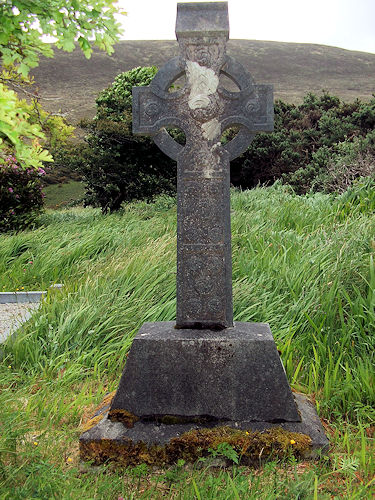
The headstone was made by William Pearse (Irish Patriot) in 1910 at the time it caused a lot of controversy as the church committee did not want a Celtic cross, it being a symbol of the emerging Irish Nationalism at the time. His widow Emily, an ardent Nationalist petitioned the authorities and got her way, and that is how Captain Weddall, ended up with a Celtic cross marking his final resting place. In spite of her political views and that she was involved in the struggle for Irish Freedom, she was loyal to her husband all her life. She signed her name in Irish; Eimhir Ui Uadall, to de-anglicize it, but always added Mrs. Weddall afterwards. Below are their marriage announcement and Captain Weddall's death announcement, both from the Irish Times. Emily was a qualified nurse.
Edward went to sea at an early age, but his father, Charles, a farmer and mother Eliza lived in the Pocklington area and had at least five more children. Captain Weddall married Emily Souter in 1870 in Eaton, but was widowed in 1894. He first met Emily, his second wife in Meneton, France in 1896 where she worked as a nurse, he was staying in the Riviera possibly, recuperating from a tropical disease. Emily (nee burke) was collecting for the Kingstown Lifeboat tragedy of the previous Christmas. According to a letter she wrote to the Irish Times telling of Captain Weddall, who made an ostentatious contribution to the fund. They married in London in 1905. Soon afterwards they moved to Ireland, where Captain Weddall died less than three years later. His widow Emily became an Irish nationalist fired up by the injustice she felt about being refused a celtic cross for her late husbands grave. She became involved in the movement for Irish Nationalism and was interred in Tullamore jail for the duration of the Easter rising in 1916. The reason was “reasonable grounds for suspecting that she was about to act in a manner prejudicial to the Defense of the Realm”. The outrage of her internment amongst Irish Nationalists was probably one of the contributory factors to the Easter Rebellion.
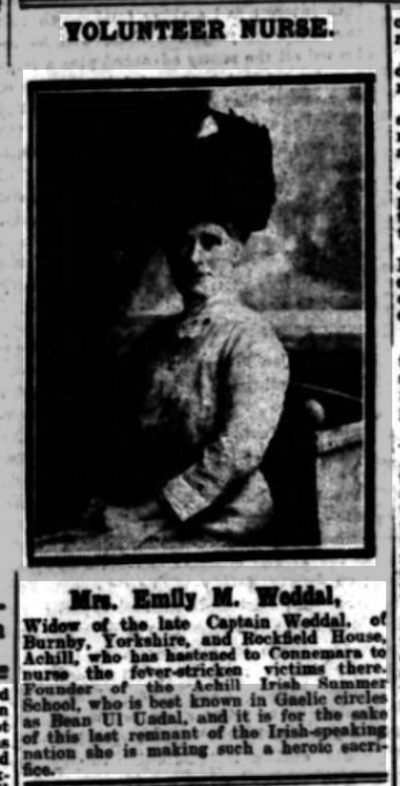
Irish Independent in Dublin published 21 May 1913.

Irish Times 13 May 1905

Irish Times 1908
To find out more about the remarkable Emily M. Weddall read Maria Gillen's blog "The Life and Times of Emily M Weddall" who played a significant part in Irish Independance in the age when Women's sufferage was coming to the forefront of politics.
Thomas Vokes - Pocklington to Sheffield
Found by Edward Bellamy, Chairman, Chapeltown & High Green Archive
at St. John's Chapeltown, nr. Sheffield. Thanks Ted!
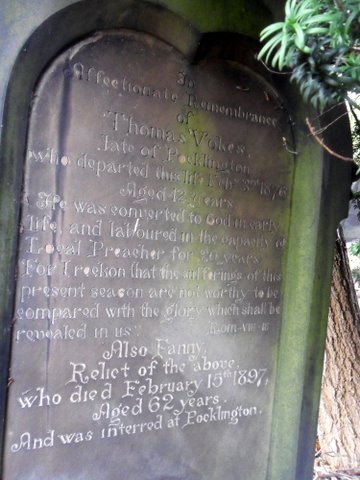
In Affectionate Remembrance
of
Thomas Vokes
late of Pocklington
who departed this life Feb 3rd 1876
Aged 42 years
He was converted to god in early
life and laboured in the capacity of
Local Preacher for 20 years
"For I reckon that the sufferings of this
present season are not worthy to be
compared with the glory which shall be
revealed in us." Romans 8:18
Also Fanny
Relict of the above
who died February 15th 1897,
Aged 62 years.
And was interred at Pocklington
Gerald Stark - Pocklington to Sydney, Australia
Kindly sent by Michael Stark
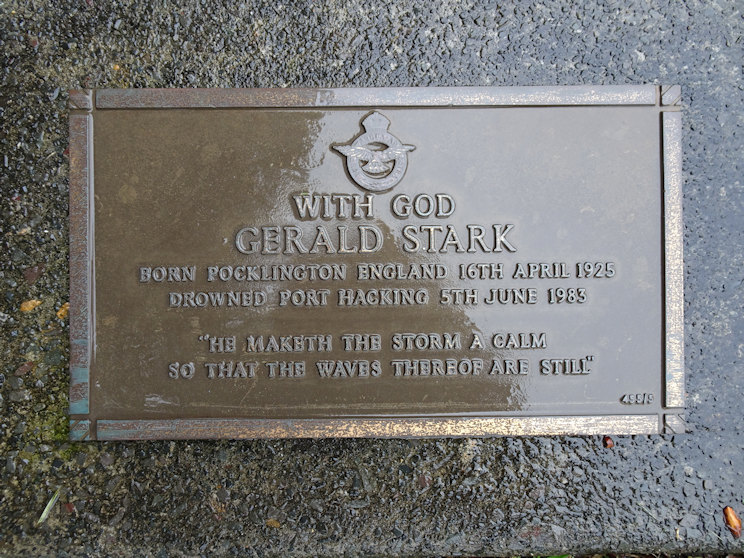
Woronora Cemetery, which is in the south eastern part of Sydney in New South Wales, Australia.
It marks the grave of Gerald Stark who, as is written, was born in Pocklington. He grew up in Pocklington, and left when he was 18 years old to join the RAF in which he served in Bomber Command during WW2. He returned to Pocklington, then a few years later, he moved to Sydney where he settled and stayed. Among his pastimes was fishing, which he quite enjoyed. But sometimes the sea takes back.
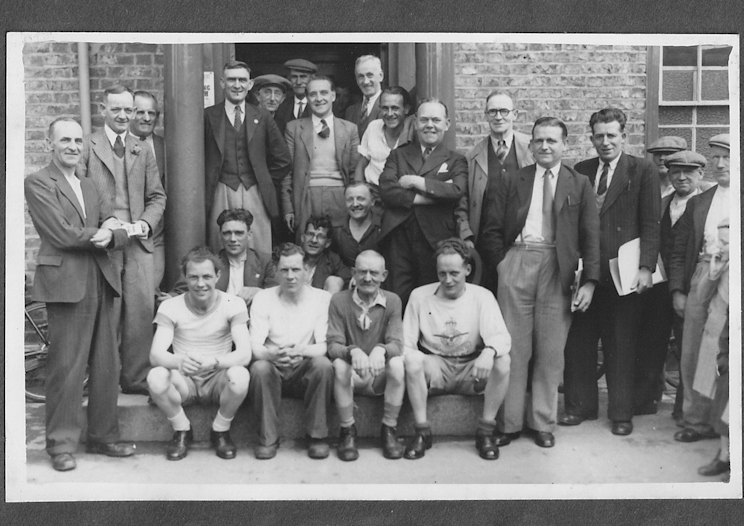
Whit Sunday 1947 walking race from the United Services Club in Pocklington- Sitting on the step, at the right of the picture is Gerald Stark. Also sitting on the step, but on the left, is Bob Pickering. Standing behind Gerald, leaning against the column, is the ubiquitous George Harrison.
|

